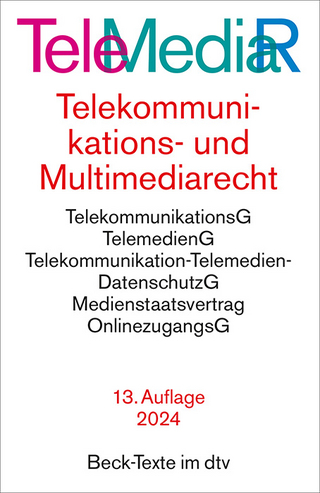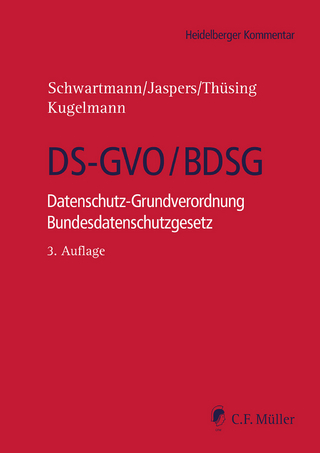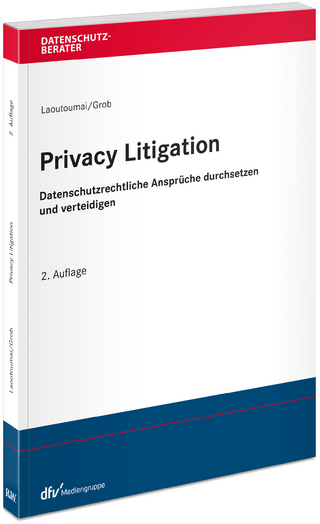
Artificial Intelligence
American Bar Association (Verlag)
978-1-63905-493-0 (ISBN)
- Lieferbar (Termin unbekannt)
- Versandkostenfrei innerhalb Deutschlands
- Auch auf Rechnung
- Verfügbarkeit in der Filiale vor Ort prüfen
- Artikel merken
Artificial Intelligence (AI) is transforming our world at a breakneck pace, including the practice of law. The recent rapid development of generative AI, which produces new outputs based on the data it has been trained on and prompts from users, has been heralded as a revolutionary intellectual and technological development. AI has the potential to improve many aspects of the practice of law, including increasing the speed at which many tasks can be done, boosting productivity, and reducing the amount of time spent on routine tasks. In addition, AI can help to solve one of the most pressing problems facing our legal system – the large number of people who are not able to afford a lawyer and must try to navigate the legal system on their own.
There also are significant challenges with the use of AI in the legal profession, including AI’s yet undetermined accuracy in drafting legal documents; its potential to undermine confidentiality, privacy and security; the capacity to introduce and perpetuate bias; and its impact on the structure of law firms. Additional concerns include the impact of AI on intellectual property rights; how law schools can best prepare students for this new AI-enabled future; and whether advances in AI will meaningfully reduce the number of attorneys that are needed to serve their clients. Governments and private organizations are grappling with how to develop laws, regulations and rules that will govern the use and functionality of AI systems.
In order to address these issues, this book contains reflections and chapters by a group of more than 40 preeminent AI and legal experts from in-house legal departments; private practice; non-profits; academia; government, and the judiciary. The book covers a wide range of important topics concerning AI and the law and provides practical advice to attorneys on how to navigate these complex and rapidly evolving issues.
The topics include:
A primer on key AI concepts
Overarching legal issues, including AI governance and ethics
AI and law practice management, including the use of digital assistants, AI use cases for lawyers, and paths to the responsible use of AI by lawyers
AI and the courts and how AI can be used to close the justice gap
Intellectual property issues, as well as issues at the intersection of AI and the Internet of Things (IoT)
The impact of AI on employment law and the workplace
Specific types of AI risks, including cybersecurity, privacy, and national security
AI and the law from the perspective of practitioners in Europe
The long-term future of AI.
Cynthia Cwik has extensive experience resolving issues at the intersection of law, science, technology, and business. She has served for twenty years as a partner at two global law firms, Jones Day and Latham & Watkins, where she represented Fortune 500 corporations in high-stakes, high-profile matters involving complex science and technology issues. She also has served as a Fellow with Stanford University’s Distinguished Careers Institute Program, where she focused on cutting-edge technology, including its economic, legal and societal impact, and corporate governance, entrepreneurship, and global perspectives for business entities. She has had leadership roles in professional organizations, including serving as Chair of the American Bar Association Section of Science & Technology Law, and President of the Executive Committee of the Yale Law School Association. She has extensive experience writing and lecturing on technology issues, and she is the co-editor of the book The Internet of Things: Legal Issues, Policy, and Practical Strategies (2019). She is a graduate of Yale College and Yale Law School. Lucy Thomson brings deep knowledge of legal and technology issues with complex emerging technologies; law enforcement, private sector, and government perspectives on challenging cybersecurity and privacy issues; a large portfolio of ABA publications she has authored; and experience as a proven ABA leader. Ms. Thomson is the founding principal of Livingston PLLC, a Washington, D.C. law firm. Through her unique background as an attorney and cybersecurity engineer, and work at the intersection of law and technology – as a white collar crime prosecutor and civil rights litigator in the Criminal and Civil Rights Divisions of the U.S. Department of Justice, senior principal engineer at CSC, a global technology company, and Consumer Privacy Ombudsman (CPO) in 35 federal bankruptcy cases – she is an authority on a broad range of critical cybersecurity and global data privacy issues. Recently appointed the CPO in the Celsius Network case (S.D. N.Y.), one of the largest cryptocurrency bankruptcies, she is responsible for evaluating the sale of “assets” consisting of sensitive personal information and has overseen the disposition of more than 350 million electronic consumer records. Her assessment of the work of the consumer privacy ombudsman and privacy risks in bankruptcy cases is featured in Sensitive Personal Data for Sale in Bankruptcy—An Uncertain Future for Privacy Protection, in the Norton Annual Survey of Bankruptcy Law, 2017 Ed. She has made significant contributions in the legal profession and inspired others through her leadership on the D.C. Bar Board of Governors (two terms), Bar Secretary, and President of the Women’s Bar Association of D.C. and its Foundation. She has been recognized by her peers for excellence in legal practice through her election to membership in the American Law Institute (ALI) and the ABA House of Delegates (since 2004) and as an elected Alumni Trustee of Phillips Academy/Andover. This year she co-authored ABA Resolution 604 on Artificial Intelligence (AI) that was passed unanimously by the House of Delegates at the New Orleans mid-year meeting. She co-authored the election cybersecurity Resolution 118 and two prior cyber resolutions. She has spoken on dozens of ABA programs. She served as 2012-13 chair of the Science & Technology Law Section, and a member of the National Conference of Lawyers and Scientists at the American Association for the Advancement of Science (AAAS) (2009-11). Ms. Thomson is a founding member of the Cybersecurity Legal Task Force, an ABA Life Fellow, and has served on the Standing Committee on the Law Library of Congress and as ABA Advisor to the Uniform Law Commission. A prolific writer, she is co-editor of The Internet of Things (IoT): Legal Issues, Policy, and Practical Strategies and editor of the Data Breach and Encryption Handbook, and a contributing author on cybersecurity America Votes! (4th Ed.), The Cybersecurity Handbook (3d Ed.), Homeland Security and Emergency Management (3rd Ed.), and Bioinformatics Law. Internationally, Ms. Thomson served as a Legal Advisor to the United Nations Centre for Trade Facilitation and Electronic Business (UN/CEFACT), the Asia-Pacific Economic Cooperation (APEC), and the Association of Southeast Asian Nations (ASEAN). For APEC, she focused on implementing the APEC Privacy Framework in Peru, Chile, Indonesia, Malaysia, the Philippines, Thailand, and Vietnam, and presented a report on her capacity-building privacy work at the senior officials meeting in Jakarta, Indonesia. Ms. Thomson is a frequent speaker at technology conferences such as RSA, the largest security conference in the world. Her understanding of technology as well as law has made her a go-to person for educating ABA members as well as the public on technology issues. Ms. Thomson received a Master’s degree from Rensselaer Polytechnic Institute (RPI) in 2001, earned the CISSP and CIPP/US certifications, and holds a J.D. degree from Georgetown. Her awards for community service include the Heroines in Technology award from Women in Technology and the March of Dimes, and the highest alumni Distinguished Service Award from Andover. An avid sailor, she races sailboats on the Chesapeake Bay and at Martha’s Vineyard.
| Erscheinungsdatum | 22.08.2024 |
|---|---|
| Zusatzinfo | Illustrations |
| Verlagsort | Chicago, IL |
| Sprache | englisch |
| Maße | 177 x 254 mm |
| Themenwelt | Recht / Steuern ► EU / Internationales Recht |
| Recht / Steuern ► Öffentliches Recht | |
| Recht / Steuern ► Privatrecht / Bürgerliches Recht ► IT-Recht | |
| Recht / Steuern ► Privatrecht / Bürgerliches Recht ► Medienrecht | |
| ISBN-10 | 1-63905-493-6 / 1639054936 |
| ISBN-13 | 978-1-63905-493-0 / 9781639054930 |
| Zustand | Neuware |
| Haben Sie eine Frage zum Produkt? |
aus dem Bereich


